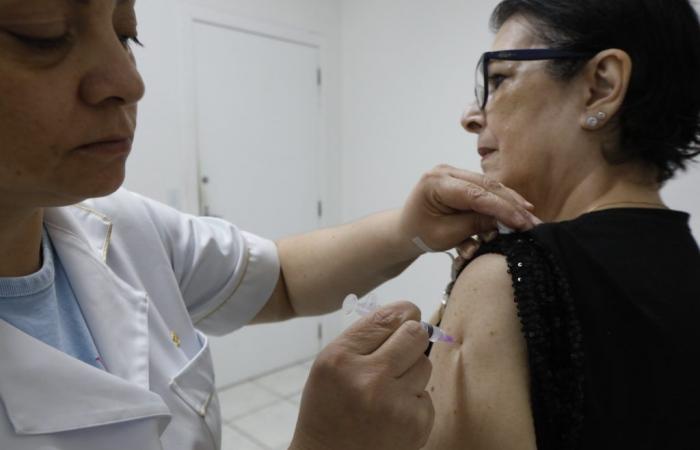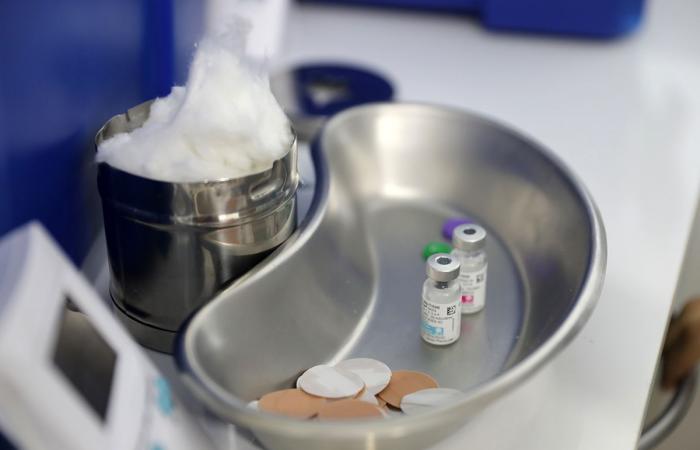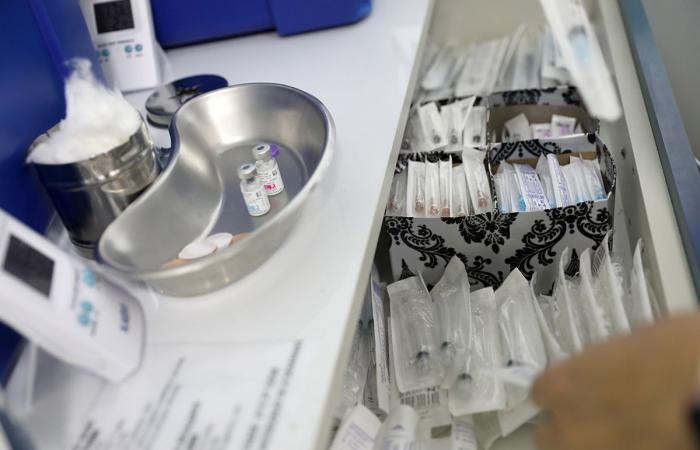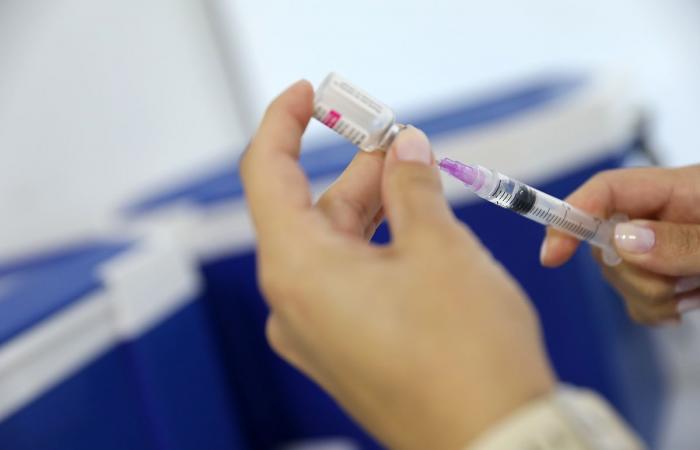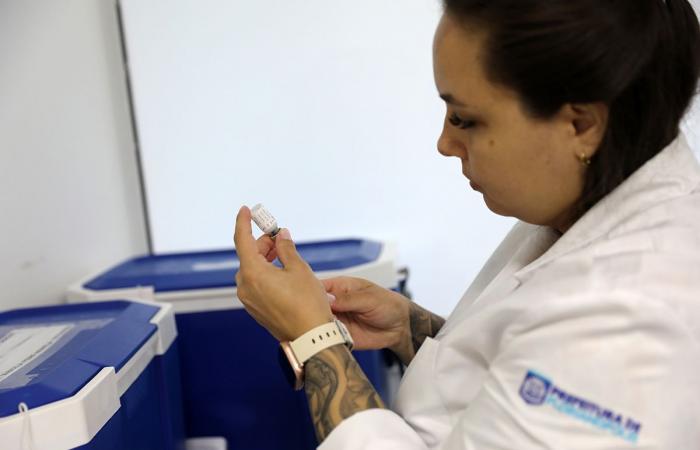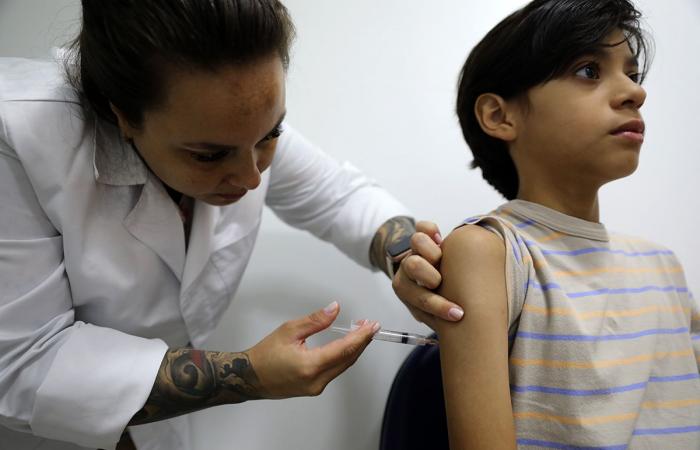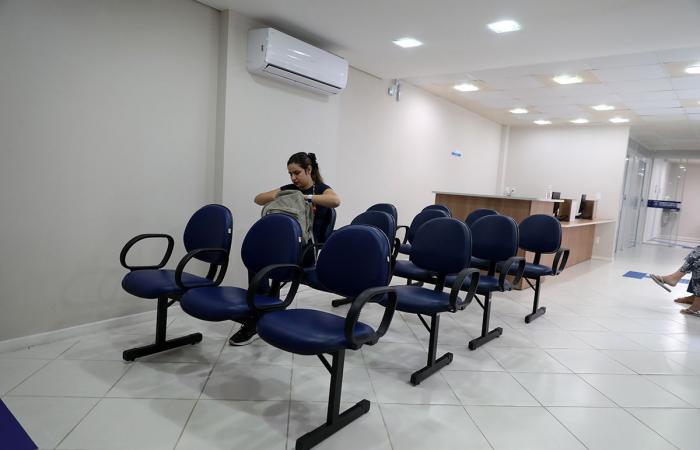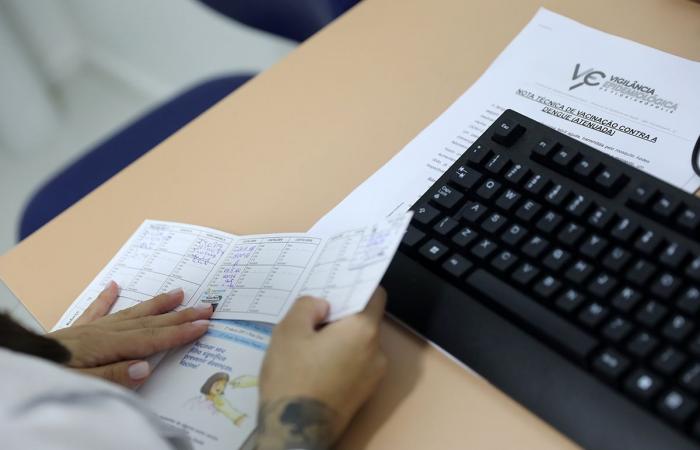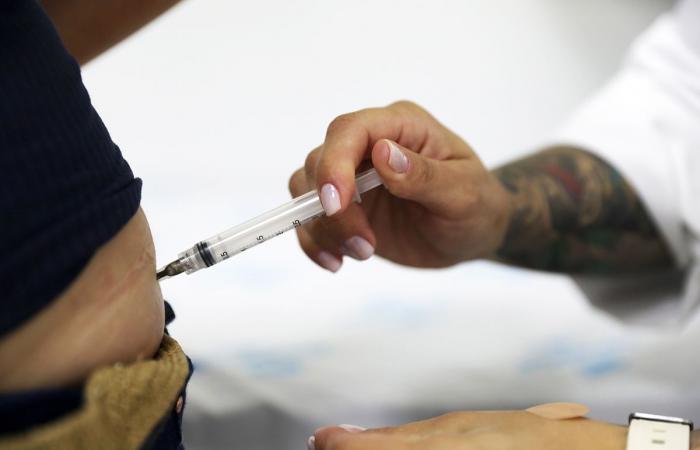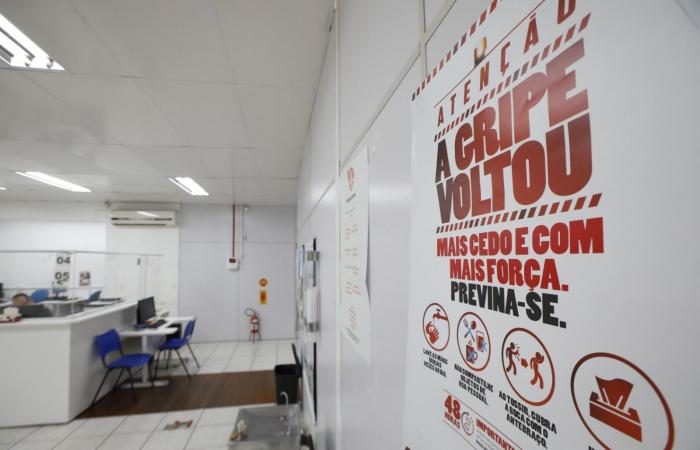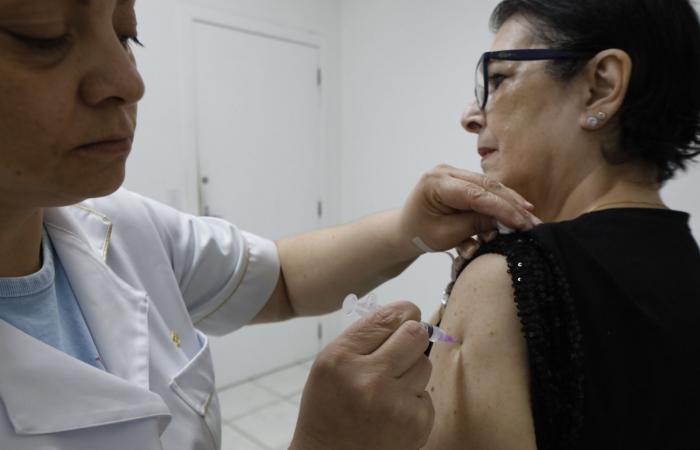The low demand for the vaccine has direct impacts on the situation of the Santa Catarina health system, which is already facing overcrowding, and in addition to illnesses, it also receives other types of care, such as surgeries, accidents, among others. Infectious disease specialist Renata Zomer de Albernaz Muniz reinforces that diseases that have a vaccine could be prevented, and thus contain this increase in demand.
Continues after advertising
Join NSC Total’s exclusive community of columnists
— With fewer people vaccinated, there is an increase in the number of cases of preventable diseases, such as flu and COVID-19, which puts an even greater burden on these health institutions. This results in a lack of beds, resources and personnel to deal with demand, which can compromise the quality of care and the ability to save lives. Furthermore, it is important to highlight that vaccination protects people from worsening the disease and even death, reinforcing the importance of getting vaccinated — explains Renata.
Doctor Marcos Paulo Guchert also reinforces that low adherence to campaigns vaccination can result in the reappearance of serious diseases such as measles, polio and diphtheria. He also highlights that the act of getting vaccinated is collective, and not only protects those who are immunized, but also those around them, as it stops serious cases of the disease..
The infectious disease specialist points out as one of the reasons for the low demand for vaccination a kind of “disdain” by the current generation towards immunizers due to living in a society in which several diseases have already been eradicated, precisely because of vaccines.
Continues after advertising
— We say that vaccines, in general, are “victims of their own success”. The current generation has not had contact with serious diseases, such as polio, smallpox, diphtheria, measles, which were eliminated with vaccines and, consequently, underestimates the benefits that vaccines have brought to modern life — claims the doctor.
Doctor Carolina Ponzi states that there is a phenomenon called “vaccine hesitancy”, among people who are not against vaccination, but have doubts or fear.
— So they end up not getting vaccinated because they don’t have the correct information, because they are insecure. And we know that when we provide good guidance to a patient, a patient’s family member, about immunizations, we talk about what this vaccine will protect against, what are the risks of the disease for which the person is being vaccinated and talk to regarding side effects of immunizations. We end up giving support to this person to decide to get vaccinated — says the infectious disease specialist.
At the same time that a portion of the population does not seek vaccines due to lack of information or fear, others are against vaccines, in a growing movement that gained strength during the Covid-19 pandemic.
Continues after advertising
— The anti-vaccine phenomenon is global and has existed for some time, being amplified by Covid-19. However, it must be combatted with scientific information that proves the safety and effectiveness of vaccines. In Santa Catarina, the anti-vaccine movement may be contributing to low adherence to vaccination campaigns by disseminating false or misleading information about the safety of vaccines. This could result in a decrease in public confidence in vaccines and, consequently, in lower adherence to vaccination — reports doctor Renata Zomer.
One of the bases of the movement is fake news and the dissemination of content without scientific basis on social media. As a result, the proportion of movements expands, and so do the risks.
— Unfortunately, individuals with this stance [antivacina] They are very active on social networks, spreading fake news and distorting some data, terrorizing people with little information. This fake news spreads very quickly and is very contagious, as are the diseases that will certainly resurface if vaccine coverage is not reestablished. Unfortunately, even doctors and other health professionals have joined the anti-vaccine movement, generally in an opportunistic way and linked to questionable secondary gains — says doctor Marcos Paulo.
Elderly people and children aged 5 to 9 represent the majority of cases
Marilésia Soares Schroeder, 73 years old, just waited for time to recover from spinal surgery to go to the General Family Outpatient Clinic in the Center of Blumenau to guarantee her dose. The retiree doesn’t even remember how many years she’s been immunized against influenza, just as she doesn’t remember when the last time she caught the flu was.
Continues after advertising
— I took the sixth dose of Covid and I’ve been taking the flu dose since they started offering it, I already have two notebooks with so many stamps on them — he says proudly.
Mother of two children and widow for four years, Marilésia likes to take care of her health and values science. She is part of the campaign’s priority group, as she is over 60 years old. In Blumenau, the goal is to immunize 127,600 people in the target audience, but until the beginning of this week only around 25% of this total had sought out a health unit to guarantee the dose.
— When someone tells me they don’t take the vaccine, I just say “your problem”, but I want to say it’s ignorance — comments the resident of the central region of the city.
In Florianópolis, flu vaccination also faces challenges in achieving immunization goals. According to the municipal health department, vaccination coverage is 11.37% in children aged six months to under 6 years old, 10.43% in pregnant women, 7.20% in postpartum women and 31.73% in the elderly.
Continues after advertising
— Hospitalizations for respiratory diseases had peaked in the first week of March and rose again in April. Records are more prevalent among children (0 to 4 years old), but also elderly people and children aged 5 to 9 years old — says Cristina Pires Pauluci, Health Secretary of Florianópolis.
Among the actions adopted by the municipalities are vaccination in Long-Term Institutions for the Elderly and home vaccination for people with mobility difficulties, D-Day, held on April 13, the dissemination of the campaign in schools and the use of the Vaccination Van in neighborhoods of the municipality.
The secretariat still intends, until the end of the campaign, to identify areas of low coverage to adjust strategies, offer vaccination on Saturdays and more vaccination points in high-traffic locations and reinforce awareness campaigns, as well as coordinate with other divisions of the administration to promote vaccination in activity groups.
Vaccination against Covid-19 and dengue also has low adherence
In addition to the flu, Covid-19 remains among the respiratory diseases that cause an increase in visits to health units and also hospitalizations. The vaccine against the disease, which has had a widely publicized campaign since January 2021, is now part of the routine vaccination schedule, and also needs attention. Currently, the recommendation from the Ministry of Health to have the complete vaccination schedule against Covid-19, for people over 12 years of age, is to have two doses of the monovalent vaccine, or one dose of the bivalent vaccine.
Continues after advertising
Children from six months of age, up to 4 years, 11 months and 29 days old, must be immunized with Pfizer Baby, at six, seven and nine months. Coronavac can be used in children aged 3 and 4 years old, in two doses, with a booster dose after the second dose. From 5 years of age, up to 11 years, 11 months and 29 days, the recommendation is pediatric Pfizer, in two doses.
In the case of priority groups, the guidance is to be vaccinated with two doses of the bivalent Pfizer vaccine. Anyone who has already had one or more doses of other vaccines against the disease must also take a dose of the bivalent vaccine to complete the course.
Children from 5 years of age to 11 years, 11 months and 29 days, who are part of the priority groups, must also take a booster dose six months after the second dose.
The Ministry of Health’s panel with data on vaccination coverage against Covid-19 in Santa Catarina shows that 77.8% of the population was immunized with two doses of the vaccine, while 40.13% had coverage with three doses, and 11. 82% with four doses. Bivalent vaccination coverage, counted separately, was 13.67%.
Continues after advertising
The number is below the country’s average, which has 84.5% vaccination coverage with two doses. The State is in 19th place compared to other states in the country and the Federal District.
Doses against dengue in the most critical regions
Another vaccination campaign underway at the moment that is worrying due to low demand is dengue. For now, the vaccine is offered to children and adolescents aged 10 to 14, in regions where the dengue situation is most critical. Vaccination occurs in two doses, with an interval of three months between them.
In the northeast region of Santa Catarina, which comprises the municipalities of Barra Velha, Corupá, Guaramirim, Jaraguá do Sul, Massaranduba, São João do Itaperiú, Schroeder, Araquari, Balneário Barra do Sul, Garuva, Itapoá, Joinville and São Francisco do Sul, immunization reached 31.49% of the target audience. The data are from the SC Epidemiological Surveillance Directorate (Dive), updated on Monday (22).
In Greater Florianópolis, which comprises the cities of Águas Mornas, Alfredo Wagner, Angelina, Anitápolis, Antônio Carlos, Biguaçu, Canelinha, Florianópolis, Garopaba, Governador Celso Ramos, Leoberto Leal, Major Gercino, Nova Trento, Palhoça, Paulo Lopes, Rancho Queimado , Santo Amaro da Imperatriz, São Bonifácio, São João Batista, São José and São Pedro de Alcântara, vaccination coverage is 13.33%.
Continues after advertising
SC faces challenges in vaccinating the population
Espaço Imuniza is a vaccination reference in the capital (Photo: Lucas Amorelli DC)
Demand for the dengue vaccine is lower than expected (Photo: Lucas Amorelli DC)

Vaccination against Covid-19 is part of the vaccination calendar (Photo: Lucas Amorelli DC)

Immunization is a collective act and saves lives (Photo: Lucas Amorelli DC)
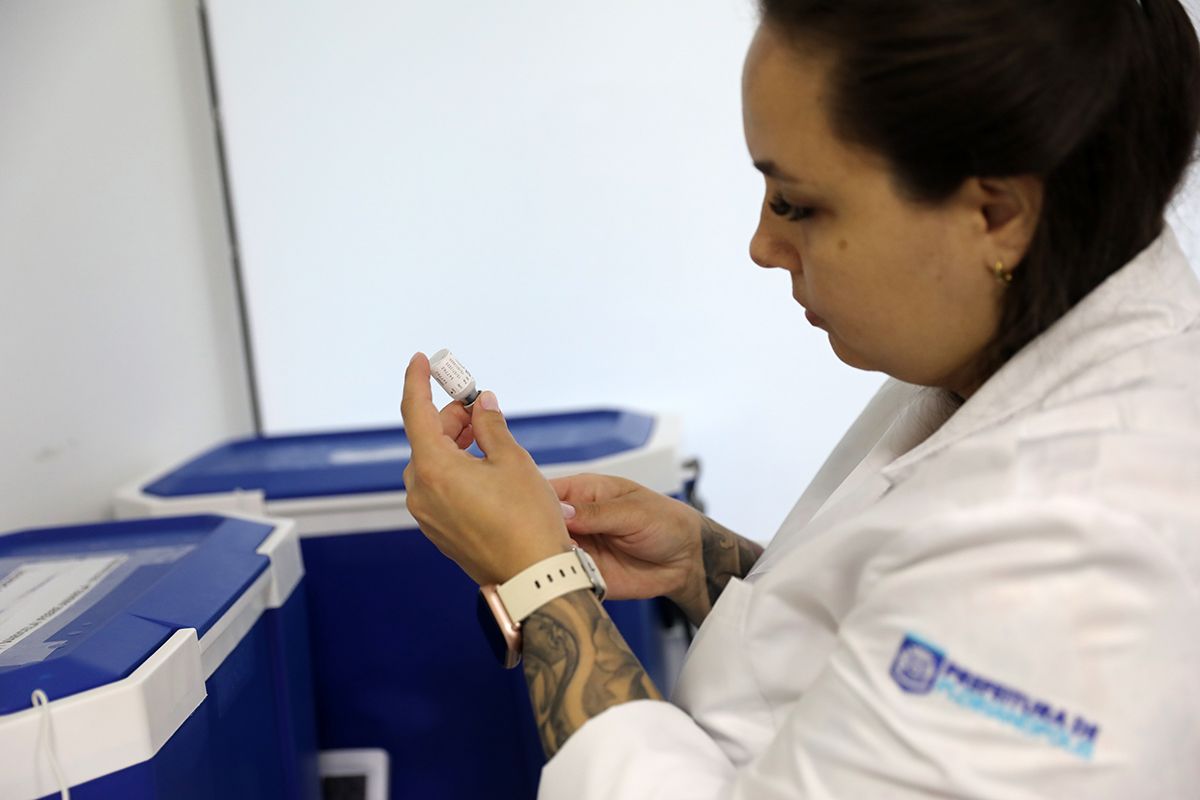
Vaccine hesitancy and anti-vaccine movement are among the reasons for low demand (Photo: Lucas Amorelli DC)

The dengue vaccine is being administered to children and adolescents aged 10 to 14 (Photo: Lucas Amorelli DC)

State is far from reaching flu vaccination target (Photo: Lucas Amorelli DC)

Vaccination calendar must be updated (Photo: Lucas Amorelli DC)

Vaccines prevent serious forms of diseases that overwhelm the healthcare system (Photo: Lucas Amorelli DC)

The flu immunization campaign runs until May 31st (Photo: Patrick Rodrigues, NSC)

Marilésia Soares Schroeder went to the health unit to take the sixth dose against Covid-19 and the flu vaccine (Photo: Patrick Rodrigues, NSC)
To go backAdvance
Read too
Santa Catarina will receive a new shipment of dengue vaccines; see region
Adherence to the dengue vaccine in SC is up against misinformation, says Health Department
Vaccines in Florianópolis: find out where to get immunized against dengue and flu in the Capital
Tags: demand vaccination combined contempt misinformation worries experts
--
